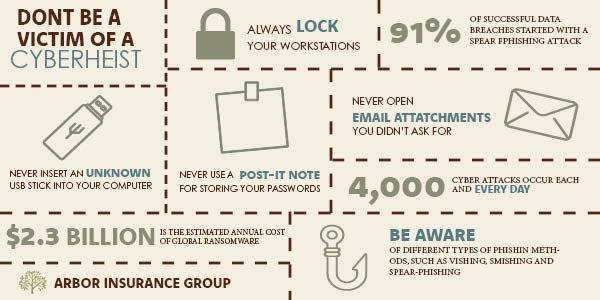
The unpredictability of the COVID-19 pandemic is forcing many businesses to extend the temporary remote work arrangements they put into place for their employees. Some are even making the choice to go 100% remote, permanently.
Although the impact of the COVID-19 pandemic on businesses across the country will continue to fluctuate over the next few months, possibly years, one thing is for sure. Work-from-home employees may expose your company to risks not currently covered by your current business insurance policies.
Here are three main work-from-home exposures you should consider for your remote workforce.
Property Exposure
All physical businesses carry property insurance to protect their physical business property. Typically, property insurance covers commercial locations that a company rents or owns and property within those locations. However, it may exclude or significantly limit coverage for property located outside of specified covered locations, even if the company owns that property.
If you have a remote workforce, either as a result of the COVID-19 pandemic or otherwise, chances are that your remote employees have company issued equipment like computers and related devices. What if those devices are damaged, lost, or stolen?
If your company has transitioned to remote work, you should evaluate whether your property insurance policy terms cover such equipment and the potentially even more valuable data in it.
Cyber
The sudden increase in remote work in response to the COVID-19 pandemic has come with a corresponding increase in cyberattacks. The Department of Homeland Security and the Cybersecurity and Infrastructure Security Agency, along with other government agencies, have warned that with so many people accessing networks via remote connections, hackers are seeking out any flaws in network security and targeting vulnerabilities in virtual private networks (VPNs) and other remote work tools and software.
Phishing attacks, using COVID-19 as a lure, are also on the rise. Hackers are preying on the public’s COVID-19 fears and thirst for information, using COVID-19-themed emails to entice recipients to click on links to visit websites that hackers use to steal data, including login information, or to entice recipients to download malware, including ransomware, inadvertently.
Hackers also are exploiting the increased use of communication platforms like Zoom and Microsoft Teams, using those as additional lures in phishing emails.
The sudden switch to a remote work environment also means that sensitive data is being sent across companies’ networks in ways it ordinarily would not, thereby increasing the risk of breach.
If your company has transitioned to remote work, a focus on cybersecurity is a must! Ensure that all employee devices including laptops, tablets, and desktops are protected from intrusion. Have an IT professional set up a secure connection from the employee’s home to your company network. Also, insist that only employees use the company’s equipment. Finally, make sure your business has a cyber insurance policy. And even if your company already has dedicated cyber insurance, the policy should be reviewed to ensure the terms match the actual risk exposure of your company’s remote operations.
Worker’s Comp
Accidents happen during work, and they can just as easily occur in the home. According to the Occupational Safety and Health Administration (OSHA), small business owners are responsible for providing employees with safe work environments. All home-based workers have the same workers’ compensation benefits as in-office employees.
Coverage for injury to workers often turns on issues such as the categorization of the worker (e.g., employee or independent contractor), where the injury occurred, or the activity the worker is engaged in at the time of injury. These lines can become more blurred for remote workers.
For example, at-home offices aren’t always ergonomically compliant, which can lead to injuries over time. In fact, the Occupational Safety and Health Administration (OSHA) has determined that almost a third of dollars spent on workers’ comp costs come from claims involving ergonomic injuries.
If your company has transitioned to remote work, you need to understand the increased potential for workers’ compensation risks under your state’s workers’ compensation laws. Staying informed on workers’ compensation issues and trends can help your company better manage emerging risks.
Final Thoughts
Review your insurance. Speak with your insurance company about having employees work from home to make sure that you are adequately covered in this area.
Arbor Insurance Group provides business insurance and other personal and business insurance products throughout the Lehigh Valley, including Allentown, Bethlehem, Easton, Emmaus, Macungie and surrounding areas.





